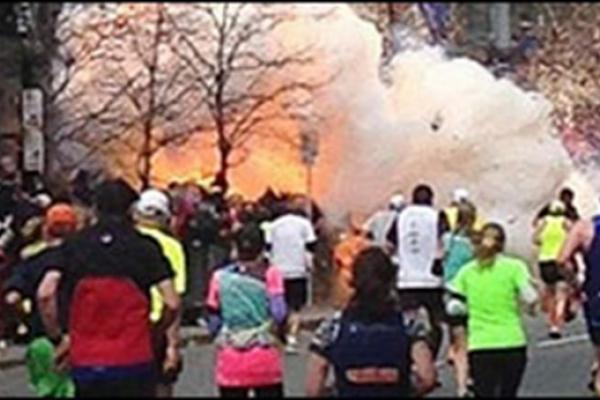The recent explosions at the Boston Marathon and subsequent media coverage exposed yet again a dangerous trend in U.S. culture: rushing to judgment in labeling and prosecuting crimes, and throwing away long-held U.S. American ideals and legal principles of due process.
Terrorism — a form of communication and a military tactic, not an ideology — is the systematic use of violence against civilians to intimidate them for a political purpose. Too many media outlets, elected officials, and community leaders have prematurely labeled the Boston Marathon bombing an act of terrorism. Some people were upset President Obama did not label the acts "terrorism" in his address just hours after the explosions.
Not all murders are terrorism — "terrorism" implies a political or ideological intention, and the "causing of terror" is not enough to merit that label. A shooting in a movie theater that does not have an agenda cannot safely be labeled "terrorism," even though it caused tremendous terror and continues to do so. Additionally, not all acts of political violence are terrorism — the military is distinguished from civilians, and so an attack on an army base is not "terrorism," even though the attack might have had a political agenda.
This distinction is more than semantics, though. The demonization of "terrorism" — the definition of which often expands to include almost all violence by oppressed people, whether international or domestic — above other violent crimes, especially in recent years, served to demonize violence originating from ideologies and movements that oppose U.S. hegemony. It also brought with it a frightening era of laws that violate not just our understanding of human rights but also the civil rights clearly defined in the U.S. Constitution and Bill of Rights. These laws and legal precedents have "legalized" and justified mass surveillance, indefinite imprisonment without charge or trial, summary execution by executive order, torture, and more.
There is also a clear double standard: the process of making the suspect into the "other," something foreign. White men (and violent criminals do seem to mostly be men) are usually given the benefit of the doubt and humanized through analysis of their life and family histories, mental illnesses, and social environments. Their violence and rampant murder of civilians is not assumed to be terrorism (except in the case of convicted Oklahoma City bomber Timothy McVeigh, who made no secret of his white supremacist and anti-government agenda).
Suspects that happen to identify as Muslim, though, are not guaranteed a standard of "innocent until proven guilty." We know nothing about the two suspects, Tamerlan and Dzhokhar Tsarnaev. We know nothing about the motivation behind the bombing, and nothing that law enforcement agencies have told the media has yet been proven in court, so it should not be reported as fact. We have no answers — only questions. Many, many questions. Yet still, mainstream narratives insist that it is somehow related to "Chechen roots," "anti-American sentiment," and, of course, "radical Islam."
This truth remains: Neither race nor religion cause, or even correlate with, violence.
The idea that there are foreign forces seeking to destroy us leads us to define "us" in a way that excludes "them." The quest for a feeling of safety trumps the importance of the U.S. experiment of liberty. We are paralyzed by our fear, and so sign away our Constitutional and human rights without thinking we lose those rights permanently. The 19-year-old Dzhokar Tsarnaev was not read his Miranda rights for days after his arrest, while national elected officials called for him to be tried as an "enemy combatant" (he is a U.S. citizen), even tortured. Why do we even have a Bill of Rights if it gets thrown out every time the media makes the public mad at someone?
We must not let this climate of fear and violence become a new normal. We must be cautious about the words we use, and the concepts and double standards we perpetuate. We live in an age of fear and instant gratification, both of which contribute to our increasingly strong desire for immediate answers and "justice" in the wake of seemingly inexplicable violence. As a nation, and as individuals, we need to do some soul searching. We are in desperate need of transformation — of turning away from prejudice, of turning toward self-sacrificial love and trust.
This nation has always struggled to align its ideals with its historical reality, climaxing in movements to abolish slavery and uphold citizenship and voting rights for women and minorities. That struggle continues as the nation deals with its new position as a global empire, the clear aggressor in its conflicts abroad. But it will come down to our collective efforts if we are to reverse the momentum that brings that war home, with all of its violence and evil. It is not just our liberty or our security that is at stake, but our humanity.
Sheldon C. Good is Assistant Director of the Washington Community Scholars' Center of Eastern Mennonite University. Cyrus McGoldrick is a human rights advocate, activist, artist, and educator based in New York City and Outreach and Development Director for the National Coalition to Protect Civil Freedoms, as well as the Muslim Chaplain at Manhattan College.
Photo: marsmet547 / Flickr
Got something to say about what you're reading? We value your feedback!
